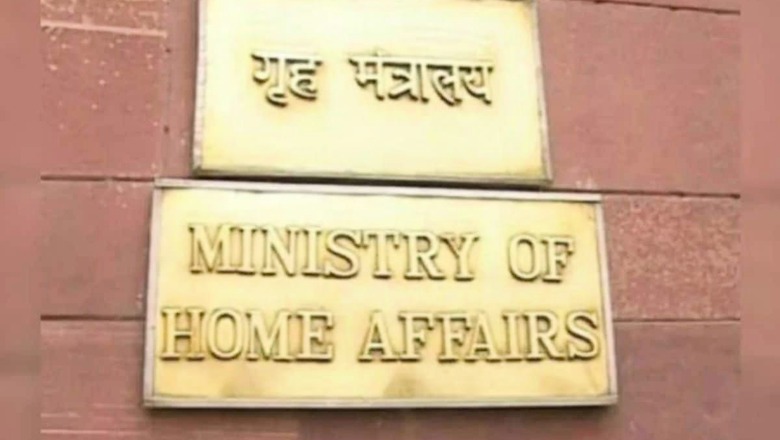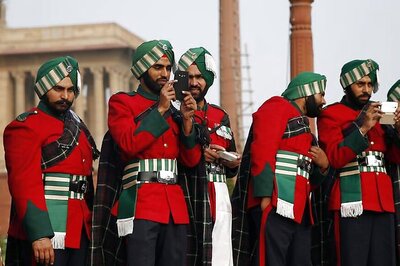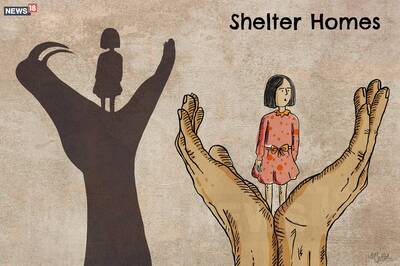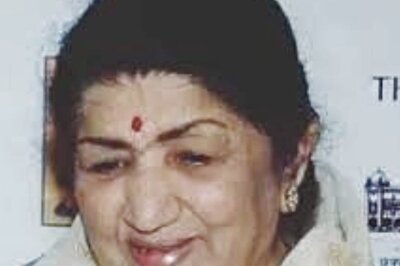
views
The Department-related Parliamentary Standing Committee for Home Affairs on Tuesday met under the chairmanship of Anand Sharma to seek views of the Ministry of Home Affairs on atrocities and crimes against women. Top officials were present for the meeting, and Home Secretary Ajay Kumar Bhalla led a presentation made before the Committee.
Crimes against women is a matter of urgent public interest and concerns one and all, MPs cutting across party lines agreed during the meeting.
Those present in the meeting told CNN-News18 that the government in its presentation said that heinous crimes against women have declined in 2019. Cases of rape registered went down by 4 percent in 2019 in comparison to 2018. Rape cases in 2018 stood at 33,356, but in 2019 stood at 32,260.
A total of 294 rape and murder cases were registered in 2018, and 283 cases were filed in 2019. The Committee was also informed that as per NCRB data, reporting of crimes against women has increased by 7.3% in 2019 compared to the year before. This has been attributed to awareness, improved access to the police and improvement in law enforcement mechanism, the government said in its presentation.
According to sources, a parliamentarian present during the meeting raised the point that the number of elected representatives with criminal cases against them — mostly crimes against women — makes one question how seriously the political system is tackling the matter. He also stated that he need of the hour was to de-politicise the police and the bureaucracy, who are often seen as more loyal to politicians than party workers.
Officials were asked if there were scientific studies explaining the causes and effects of atrocities against women, to which government replied stating that there was no such study.
When asked whether alcohol consumption, especially that of country-made liquor, led to such crimes, Home Ministry officials said that in most cases the accused was either drunk or under the influence of drugs.
Members of Parliament were of the opinion that the lacuna in the criminal justice system was glaring even after horrific incidents like the Nirbhaya rape case.
On being questioned about the condition of women lodged in prisons, Home Ministry officials said that as per records, 31 women-only prisons house more than 19,319 prisoners. Many of them live in extremely dirty conditions exposing them to risk of disease.
Another MP also asked the government about plans to legalise prostitution. As per records, the number of sex workers run into several lakhs who lack body rights and do not have access to take up matters judicially or through courts. Members also asked the government what their plan was to handle the concerns of these women.
Across the panel, there was extreme criticism of the way media has reported such criminal cases. It was agreed that TV media was often seen hounding family members of victims and publishing their pictures and confessions. MPs asked the government for the need to curb this overdrive by media in such matters and whether there is ground to add more stringent regulations.
MPs also cited that there is never a serious discussion about the sexual harassment of women at workplace, when about 96 percent women work in the unorganised sector.
The response to all queries posited by MPs will be sent by way of written replies.
The MHA also listed a series of steps taken to secure women from such crimes. This included stringent punishment under criminal law including capital punishment for atrocities against minors, maintaining a national database of sexual offenders, quick response teams availability, gender sensitisation at all levels, having women help desks in police stations, investigation tracking systems for sexual offences, training for collection of crucial evidences in such cases, anti-human trafficking cells in all districts and cyber crime prevention cells to tackle violations against women and children.
About 87 rape cases a day were recorded in 2019 and 4,05,861 cases of crimes against women during the same year as per National Crime Records Bureau.
Every 16 minutes, a woman is raped and every four minutes, a woman is subjected to domestic violence in India. As per records, Uttar Pradesh tops the list of crimes against women, followed by Rajasthan.
Read all the Latest News and Breaking News here




















Comments
0 comment